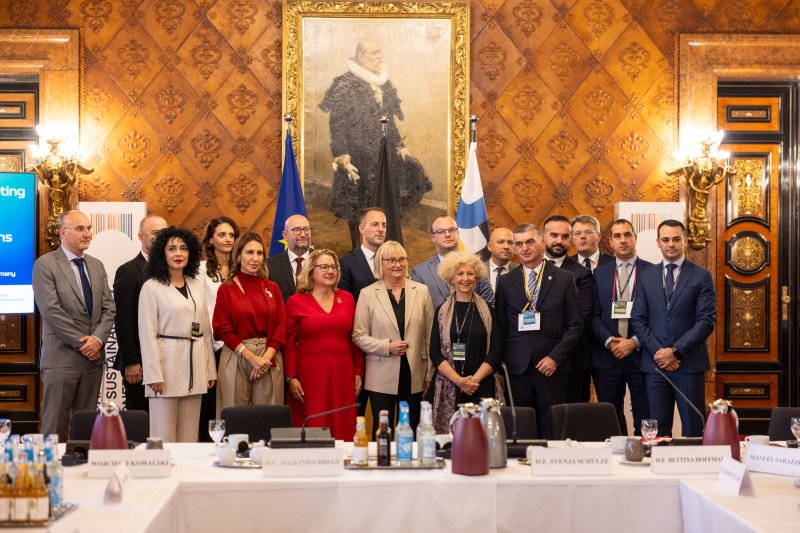'Climate Crisis is Not Slowing Down'
The representatives of the Western Balkans Six endorsed a Hamburg Declaration on the Green Agenda for the Western Balkans (GAWB) renewing their commitment to the GAWB at the meeting organized by the Regional Cooperation Council (RCC) in collaboration with the Federal Ministry of Economic Cooperation and Development of Germany and supported by the European Commission, in Hamburg today.
“Our hearts weigh from the devastating images coming from Bosnia and Herzegovina – precious lives lost and essential infrastructure severely damaged – evoking memories of 2014 severe floods. Tragedies of this kind can either set us in despair or mobilize with even greater resolve to protect the people and our homes. Top environmental concerns for our citizens are: air pollution (57%), water pollution (43%), soil pollution (38%) and then poor waste management (37%). The Green Agenda Western Balkans endorsed 3 years ago can indeed contribute to reducing pollution, cutting carbon emissions, and achieving our shared climate-neutrality goals. The climate crisis is not slowing down, and is a major challenge necessitating scaling up ambition and ramping up investments. We need to better prepare for climate change, to protect and restore our biodiversity, decarbonize and industrialize in parallel. Sustainable and inclusive growth that prioritises people, nature and climate must be the guideposts of all our actions,” said RCC Secretary General, Majlinda Bregu at the meeting.
Besides establishing the Ministerial Meeting on the GAWB, as an annual event from this day forward, the Hamburg Declaration on GAWB highlights several key initiatives, including initiating the revision of the GAWB Action Plan, finalising the Regional Action Plan on Prevention of Plastic Pollution, including Marine Litter, and the WB6 Climate Adaptation Roadmap, the development of Western Balkans 2030 Biodiversity Strategy Plan and the establishment of monitoring, reporting, verification and accreditation (MRVA) of emissions. The Declaration shall be included in the Chairs’ Conclusions of the Berlin Process Summit 2024 that is to take place on 14 October in Berlin.
The German Minister for Economic Cooperation and Development, Svenja Schulze, emphasized that sustainable development of Europe relies on strong regional cooperation and the current political momentum of the Berlin Process, commending the Western Balkans for their commitment and progress toward shared sustainability goals.
The primary objective of this first Annual Ministerial Meeting on the Green Agenda for the Western Balkans was to review the progress made in implementing the GAWB Action Plan across all seven components, and to provide strategic guidance for future endeavours. Through interactive discussions and exchanges, participants identified areas of success, challenges, and opportunities and agreed on measures to accelerate progress towards shared environmental goals.
European Commission’s Adviser on the Western Balkans at the Directorate General for Neighbourhood and Enlargement Negotiations, Wojciech Kowalski, stressed the co-dependency of the EU’s and Western Balkans’ green transition, highlighting the essential role of the private sector in achieving the Green Agenda goals, thanking the RCC and all regional partners for their commitment to making sustainable development a shared priority.
The Ministerial Meeting on the Green Agenda for the Western Balkans , held for the first time this year within the Berlin Process, is a key platform for advancing environmental sustainability and climate resilience in the region. In alignment with the Sofia Declaration, this meeting unites stakeholders to review progress, tackle challenges, and outline future actions.













